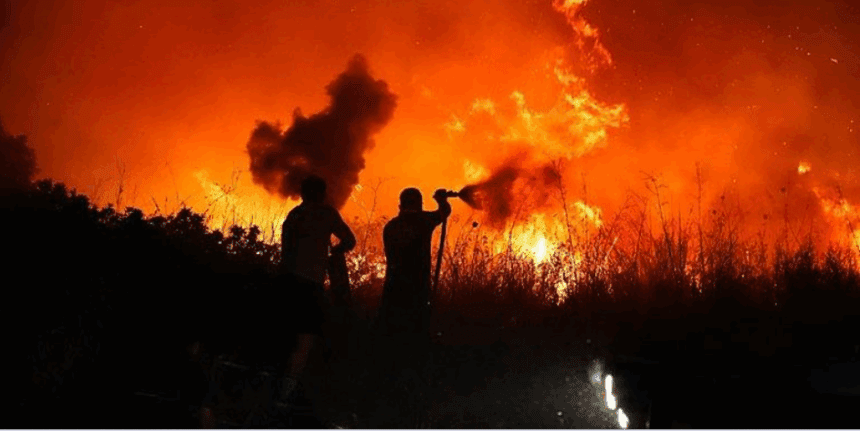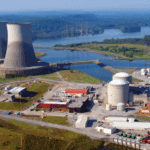Devastating wildfires sweeping across the Turkish provinces of İzmir, Manisa, and Hatay have burned more than 133,000 hectares of land, triggered the evacuation of over 50,000 people, and reignited public anger over what many see as the government’s slow and inadequate response.
Fires broke out last week in multiple locations across western and southern Turkey, continuing to burn amid high summer temperatures, low humidity, and strong winds. While firefighting efforts are ongoing, local officials say only limited progress has been made in containing the flames, as difficult terrain and shifting winds have hindered ground crews and aerial operations.
Authorities have yet to issue a comprehensive update on the scope of the disaster. The lack of clear communication, combined with images of uncontrolled fires and displaced residents, has led to widespread frustration among citizens, especially in fire-stricken areas.
Public Anger Over Government Response
Social media has been flooded with videos and photographs of burning hillsides, destroyed homes, and residents attempting to douse flames with buckets and garden hoses. Many users have questioned the absence of national media coverage and accused state institutions of failing to act decisively.
“Why isn’t any news channel covering this? Why the silence? Our homes, our forests, our very lungs are burning,” a user in İzmir posted online.
In Hatay, residents say the wildfires have compounded the trauma of the devastating earthquakes that struck the province in February 2023. “We watched our city collapse during the earthquakes, and now we are watching it burn. Recovery had barely begun,” one resident said. Entire neighborhoods, still rebuilding from the quake, have now been evacuated again due to fire risk.
A Recurring National Crisis
Wildfires have become an increasingly frequent and destructive challenge in Turkey during the summer months. This year’s fires are already being compared to the catastrophic wildfire season of 2021, when blazes raged across more than 30 provinces, destroying villages, forests, farmland, and touristic areas.
In 2021, over 200,000 hectares of land were burned in one of the worst fire seasons in modern Turkish history. At the time, the government was sharply criticized after admitting that the country lacked serviceable firefighting planes. The response relied heavily on international aid, with aircraft arriving from countries including Russia, Ukraine, and Azerbaijan.
In the aftermath, authorities pledged to upgrade the nation’s firefighting capacity, but concerns persist. The current fires suggest that many of the same logistical and operational problems — from delayed aerial support to coordination challenges — remain unresolved.
Evacuations and Damage
Local emergency services have confirmed that more than 50,000 residents have been evacuated across dozens of villages and neighborhoods. In some areas, entire agricultural zones have been reduced to ash, along with orchards, olive groves, and livestock.
Firefighting teams, supported by municipal workers and volunteers, continue to battle the flames on multiple fronts. Aircraft have been deployed where weather conditions permit, though gusty winds have frequently grounded operations.
In the affected provinces, citizens have mobilized to support each other, offering food, shelter, and transport to displaced families. Community centers and schools have been converted into temporary shelters.
Calls for Accountability
Public demands for greater transparency and accountability are growing, as the fires expose once again the country’s vulnerability to climate-fueled disasters and the need for better disaster management infrastructure. Many are calling for a full audit of Turkey’s emergency preparedness and forest protection measures, warning that without systemic improvements, such tragedies will only become more frequent and more deadly.
With temperatures expected to remain high in the coming days, fire crews remain on high alert, and the scale of destruction is likely to grow. As residents continue to fight to save their homes and livelihoods, many are left asking the same question that echoed during previous disasters: Why wasn’t this prevented?



